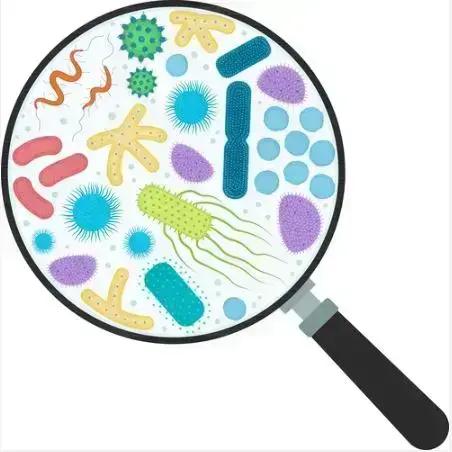Interventions to lower the risk for cardiovascular disease and metabolic syndrome, correction of vitamin B12 and folate deficiencies, and targeting the gut microbiota and its associated genes to improve mental health outcomes were discussed at EPA 2019. The future role of psychobiotics and the effects of different antipsychotic medication on gut microbes were also highlighted.
이번 EPA 2019에서는 심혈관 질환 및 대사증후군의 위험을 낮추는 치료, 비타민 B12 및 엽산 결핍의 보정, 장내 미생물 및 관련 유전자를 표적으로 한 정신 건강 개선 등의 주제에 관한 논의가 이루어졌습니다. 또한 향후 사이코바이오틱스(Psychobiotics)의 역할과 다양한 항정신병 치료제가 장내 미생물에 미치는 효과에도 주목했습니다.
Life expectancy for patients with psychosis is reduced by 10–15%,1 said Professor Peter Falkai, University of Munich, Germany, and metabolic syndrome and cardiovascular disease are the most common causes for this premature mortality.
독일 뮌헨대학교 피터 팔카이(Peter Falkai) 교수는 “정신질환자는 기대 수명이 10~15% 줄어든다”1고 말했습니다. 또한 이러한 조기 사망의 주요 원인으로는 대사증후군과 심혈관 질환이 꼽힙니다.
Serious mental illness lowers life expectancy
중증정신질환은 기대 수명을 단축시킵니다
Guidelines recommend changing to another antipsychotic medication to counteract substantial weight gain, noted Professor Falkai, but changing may not be easy in practice. Psychosocial interventions, such as weight loss and exercise programs, can lead to weight loss and improved fasting glucose levels; and have been proposed as an alternative.2
팔카이 교수에 따르면 가이드라인에서는 현저한 체중 증가에 대응할 때 다른 항정신병 치료제로 바꾸는 것을 권장하고 있으나, 실제로는 치료제를 변경하는 것이 쉽지만은 않습니다. 체중 감량 및 운동 프로그램과 같은 심리사회적 치료 방식은 실질적인 체중 감량과 공복 혈당 수치 개선으로 이어질 수 있으며, 그동안 대안 치료 방안으로도 제시되어 왔습니다.2
Lifestyle coaching did not improve 10-year cardiovascular disease risk
생활 습관 코칭으로는 향후 10년 이내의 심혈관 질환 발병 위험을 완화할 수 없었습니다
A recent large-scale randomized study to evaluate the long-term effect of 12 months of lifestyle coaching of varying intensity in patients with abdominal obesity and schizophrenia spectrum disorders has, however, failed to show benefit on the 10-year cardiovascular disease risk compared with controls.3 The lifestyle coaching included facilitating smoking cessation, enhancing physical activity, improving healthy dietary habits, and monitoring and treating risk factors, such as hypertension, diabetes and dyslipidemia.
그러나 최근 복부 비만과 정신분열병 스펙트럼 장애의 중증도가 각각 다른 환자들을 대상으로 12개월간 생활 습관 코칭의 장기적 효과를 평가하는 대규모 무작위 연구에서는 향후 10년 이내의 심혈관 질환 발병 위험 완화에 대한 대조군 대비 긍정적 효과를 입증하지 못했습니다.3 이 연구에서는 금연 독려, 신체적 활동 강화, 건강한 식습관 개선, 고혈압∙당뇨∙이상지질혈증 등의 위험 요인 모니터링 및 치료가 포함된 생활 습관 코칭을 진행했습니다.
Professor Falkai concluded that simply combining behavioral advices to change lifestyle might not be enough to improve long-term outcomes, but highlighted the importance of controlling metabolic risk by treating metabolic syndrome, and checking vitamin B12 and folate levels and treating any deficiency.
팔카이 교수는 단순히 생활 습관 변화를 위한 행동 조언을 제공하는 것은 장기적으로 치료 결과를 개선하기에 충분치 않을 수 있다는 결론을 내리면서, 대사증후군 치료를 통한 대사 위험 요인 제어, 비타민 B12 및 엽산 수치 확인과 결핍에 대한 처치의 중요성을 강조했습니다.
Gut microbes play a crucial role in brain development
장내 미생물은 뇌 발달에 중대한 역할을 수행
Professor Ted Dinan, Department of Psychiatry and APC Microbiome Institute, Cork, Ireland, emphasized the importance of gut microbiota and its diverse DNA for mental health. We have coevolved and feed the microbes, and in return they produce molecules required by our brains and other organs, he explained.
아일랜드 코크대학교 정신의학부 및 APC 마이크로바이옴연구소의 테드 디넌(Ted Dinan) 교수는 장내 미생물총(microbiota)과 그것들의 다양한 DNA가 정신 건강에 미치는 중요성을 강조했습니다. 디넌 교수의 설명에 따르면 인간은 장내 미생물과 공진화하여(coevolved) 자랄 수 있도록 해주고, 그 대가로 미생물은 인간의 뇌와 여러 장기들에 필요한 분자를 생성합니다.
Routes of communication between the gut microbiota and the brain are:
장내 미생물과 인간의 뇌 사이에 이루어지는 상호작용의 경로는 다음과 같습니다.
- the vagus nerve, which is a bidirectional route; vagotomy prevents certain microbes from communicating with the brain
- 양방향 신호를 전달하는 미주 신경. 미주 신경 절제술을 받으면 특정 미생물들이 뇌와 상호작용을 할 수 없게 됩니다.
- short chain fatty acids (SCFAs) such as butyrate and proprionate, which are produced by microbes when they metabolize certain fibees — SCFAs are transported in the blood and act through classic G-protein coupled receptors in the brain and also as epigenetic modulators
- 미생물이 특정 섬유를 대사시킬 때 생성하는 butyrate , proprionate 등의 단쇄지방산(SCFA) - 단쇄지방산은 혈액 내로 운반되며, 뇌 내에서 전형적인 G-단백질 연결 수용체(G-protein coupled receptors, GPCR)를 통해 작용하고, 후성유전적 조절인자(epigenetic modulators)로도 작용합니다.
A diverse gut microbiota appears to positively influence mental health
다양한 장내 미생물총이 정신 건강에 긍정적 영향을 미치는 것으로 보입니다
Professor Dinan added that over the past 10 years, it has become clear that gut microbes synthesize tryptophan, the building block of serotonin, and animals fed bifidobacteria have increased blood tryptophan levels.
디넌 교수는 지난 10년간 장내 미생물에 의해 세로토닌의 구성요소인 트립토판이 합성된다는 사실이 분명해졌으며, 비피더스균을 주입한 동물의 경우 혈중 트립토판 수치가 증가했다고 설명했습니다.
Diet is the main determinant of the gut microbiota
식단은 장내 미생물총의 주요 결정 인자
The crucial role of the gut microbiota in brain development has been demonstrated in germfree animals (animals with no gut microbiota), where the brain and hippocampal stem cells do not develop normally, said Professor Dinan. In addition, some microbes are capable of producing most of the important cerebral neurotransmitters and influence the activity of the enteric nervous system and gut.
디넌 교수에 따르면, 뇌와 해마의 줄기 세포가 정상적으로 발달되지 않는 무균 동물(장내 미생물총이 없는 동물) 연구를 통해 뇌 발달에 있어 장내 미생물총이 중대한 역할을 수행한다는 사실이 입증되었습니다. 또한 일부 미생물은 주요 뇌 신경 전달 물질의 대부분을 생성하는 능력이 있으며, 장 신경계 및 장 활동에 영향을 미칩니다.
Brain and hippocampal stem cells do not develop normally in animals with no gut microbiota
장내 미생물총이 없는 동물은 뇌와 해마의 줄기 세포가 정상적으로 생성되지 않습니다
The consistency of the microbiota is determined at birth: babies born by Caesarean section and vaginal delivery acquire different microbiota as a result of their differing immediate exposure to microbes. A healthy diversity of gut microbiota from then on is positively influenced by breastfeeding and fibers in the diet and negatively affected by exposure to antibiotics and unhealthy processed foods.4 As adults, the main determinant of the gut microbiota is diet.
장내 미생물총의 일관성은 출생할 때부터 정해집니다. 제왕절개로 태어난 사람과 자연 분만으로 태어난 사람은 미생물에 대한 즉각 노출도가 다르므로 서로 다른 미생물총을 가지고 타고나게 됩니다. 출생 후에는 모유 수유와 식단 내 섬유질이 건강하고 다양한 장내 미생물총을 갖추는 데 긍정적 영향을 미치는 한편, 항생제와 건강에 좋지 않은 가공 식품에 노출되는 것은 부정적 영향을 미칩니다.4 성인이 된 후 장내 미생물총의 주요 결정 인자는 식단입니다.
Decreased diversity in gut microbiota in depression
우울증 환자에서의 감소된 장내 미생물총 다양성
What is the microbiota like in a patient with depression? asked Professor Dinan. The gut microbiota may play a causal role in the development of features of depression, and may provide a tractable target in its treatment and prevention.
디넌 교수는 “우울증 환자의 장내 미생물총은 어떤 양상을 보일까”라는 질문을 던졌습니다. 장내 미생물총은 우울증의 특징 발생을 유발하는 원인이 될 수 있으며, 따라서 우울증 치료와 예방 과정에서 다루기 쉬운 표적(Tractable target)이 될 수 있습니다.
Professor Dinan described a study of age and gender-matched controls that demonstrated very different gut microbiota with decreased diversity in subjects with depression. Subsequent fecal microbiota transplantation (FMT) from the depressed subjects into rats was associated with behavior change (anhedonia and anxiety-like behavior) and alterations in tryptophan metabolism and increases in acute phase C-reactive protein in the rats. No change in behavior was observed in rats who underwent FMT from control patients.5
디넌 교수는 성별 및 연령별로 매칭한 환자 대조군 연구를 통해 우울증 환자에게서 다양성이 감소하였고 상당히 다른 양상의 장내 미생물총을 보인 결과에 대해 설명했습니다. 이후 우울증 발병 연구 대상에게서 채취한 분변의 미생물총을 쥐에게 이식(fecal microbiota transplantation, FMT)한 결과, 행동 변화(무쾌감증, 불안 유사 행동)와 트립토판 대사 변화가 발생했으며 급성 C-반응 단백질(C-reactive protein) 수치가 증가했습니다. 반면, 대조군 환자 분변의 미생물총을 이식 받은 쥐는 행동에 변화가 없었습니다.5
Strategies to increase gut microbiota diversity and genes
장내 미생물총 다양성 및 유전자 증가를 위한 전략
We cannot change the genes in our body, but we can change the genes of our microbiota by altering our diet
인간의 체내 유전자는 변경이 불가하지만, 미생물총의 유전자는 식단 조절로 변경할 수 있습니다
We cannot change the genes in our body, but we can change the genes of our microbiota by altering our diet, said Professor Dinan. And the main ways to do this are through live biotherapeutics (previously known as probiotics), prebiotics, FMT and diet.
디넌 교수는 인간의 체내 유전자는 변경이 불가능하지만, 체내 미생물총의 유전자는 식단 조절을 통해 변경할 수 있다고 말했습니다. 이를 위해 활용되는 주요 방법은 (프로바이오틱스로 알려진) 살아있는 바이오테라퓨틱스, 프리바이오틱스, FMT, 그리고 식단입니다.
Psychobiotics are live organisms that produce a health benefit for patients with psychiatric illness when ingested in an adequate amount,6 explained Professor Dinan who described this concept with his colleagues in 2013.
디넌 교수는 사이코바이오틱스(Psychobiotics)는 적당량 섭취 시 정신질환자의 건강에 좋은 영향을 미치는 살아있는 유기체6라고 설명했는데, 그는 2013년에 동료들과 함께 이 개념을 만들어냈습니다.
As an example, Bifidobacterium longum has been found to have profound anti-anxiety activity7 and appears to enhance cognitive ability in mice,8 and reduced stress responses and improved memory associated with altered EEG activity in healthy vounteers,9 said Professor Dinan.
예컨대, 비피도박테리움 롱굼(Bifidobacterium longum)은 상당한 항불안 활성을7 가지고 있으며, 생쥐에서 인지 능력을 향상시키고,8 건강한 연구 대상자에게서 스트레스 반응을 줄여주었고, 변경된 EEG(뇌파도) 활동과 관련하여 기억력을 개선9하는 것으로 보인다고 디넌 교수는 설명했습니다.
Antipsychotics have different effects on the gut microbiota
항정신병 치료제는 장내 미생물총에 다양한 영향을 미칩니다.
Psychobiotics are live organisms that produce a health benefit for patients with psychiatric illness
사이코바이오틱스는 정신질환자의 건강에 좋은 영향을 미치는 살아있는 유기체입니다
Some treatment with antipsychotic medication can result in substantial weight gain. It is now known that these antipsychotics change the gut microbiota in animals, resulting in a decrease in bacteriodetes and increased firmicutes, explained Professor Dinan, and this occurs in humans, too.
항정신병 치료제를 이용한 일부 치료 방식은 급격한 체중 증가를 유발할 수 있습니다. 디넌 교수의 설명에 따르면 이러한 항정신병 치료제는 동물의 장내 미생물총에 변화를 일으키는데, 의간균류(Bacteroidetes) 감소와 후벽균(Firmicutes) 감소를 초래하는 것으로 밝혀졌으며, 이는 사람에서도 마찬가지로 발생하는 현상입니다.
Furthermore, it has recently been shown that whereas some antipsychotics have antimicrobial activity on the gut microbiota, others increase its diversity and richness,10 he added. Such findings promise to provide new knowledge about the mechanisms of action and the associated adverse effects of different antipsychotics.
또한 디넌 교수는 최근 연구 결과에 따르면 항정신병 치료제 중 일부는 장내 미생물에 대해 항균성 활동을 수행하는 반면, 다른 유형은 장내 미생물의 수와 다양성을 증가시키기도 한다10고 덧붙였습니다. 이러한 연구 결과들은 다양한 항정신병 치료제의 작용 메커니즘과 관련 이상반응들에 대한 새로운 지식을 제공할 것을 시사합니다.
본 자료는 Global Lundbeck 의학부에서 선별한 콘텐츠이며, 한국룬드벡의 의견과 다를 수 있습니다




